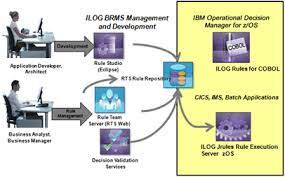The Impact of Irrational Decisions on Your Life
Decisions are an integral part of our everyday lives. Whether big or small, the choices we make can have a significant impact on our future. While some decisions are made rationally based on logic and reasoning, others can be influenced by emotions, biases, or external factors.
When irrational decisions are made, the consequences can be far-reaching and detrimental. Acting impulsively without considering all possible outcomes can lead to regret, missed opportunities, and unnecessary stress.
One common example of irrational decision-making is succumbing to peer pressure. Making choices simply to fit in or please others, rather than based on personal values and beliefs, can result in feelings of dissatisfaction and loss of authenticity.
Another scenario where irrational decisions often occur is in financial matters. Impulse buying, overspending, or investing without proper research can lead to financial instability and long-term consequences.
It’s important to recognize the signs of irrational decision-making and take steps to mitigate its effects. By practicing mindfulness, self-awareness, and seeking advice from trusted sources, you can improve your decision-making process and avoid making choices that may harm your well-being.
Remember that it’s okay to seek help when faced with difficult decisions. Consulting with a professional or discussing options with a trusted friend or family member can provide valuable insights and support in making more rational choices.
Ultimately, being aware of the impact of irrational decisions on your life is the first step towards improving your decision-making skills and creating a more fulfilling future for yourself.
Five Essential Strategies to Overcome Irrational Decision-Making
- Recognize your emotions and how they may be influencing your decisions.
- Take time to gather all relevant information before making a decision.
- Consider the potential consequences of your decision on yourself and others.
- Seek advice or input from trusted individuals to gain different perspectives.
- Be aware of cognitive biases that may lead to irrational decision-making.
Recognize your emotions and how they may be influencing your decisions.
Recognizing your emotions and understanding how they may be influencing your decisions is a crucial tip in avoiding irrational choices. Emotions can cloud judgment and lead to impulsive actions that may not align with your long-term goals or values. By taking the time to acknowledge and evaluate your feelings before making a decision, you can gain clarity and make choices that are more rational and in line with what truly matters to you.
Take time to gather all relevant information before making a decision.
Taking the time to gather all relevant information before making a decision is crucial in avoiding irrational choices. By ensuring that you have a comprehensive understanding of the situation, potential outcomes, and consequences, you can make a more informed and rational decision. Rushing into a choice without considering all relevant factors can lead to impulsive and regrettable decisions. Therefore, taking the necessary time to collect information allows for a more thoughtful and reasoned approach to decision-making, ultimately leading to better outcomes.
Consider the potential consequences of your decision on yourself and others.
When faced with the temptation to make an irrational decision, it is crucial to pause and consider the potential consequences on both yourself and others. Taking a moment to reflect on how your choice may impact not only your own well-being but also the lives of those around you can help you make a more informed and thoughtful decision. By weighing the short-term gratification against the long-term implications, you can avoid hasty choices that may lead to regret or harm. Remember that every decision has ripple effects, and taking the time to think through the possible outcomes can lead to more positive and beneficial results for everyone involved.
Seek advice or input from trusted individuals to gain different perspectives.
Seeking advice or input from trusted individuals can provide valuable insights and perspectives when faced with making irrational decisions. Trusted friends, family members, or mentors can offer a fresh viewpoint that may not have been considered, helping to shed light on potential consequences and alternative options. By opening up to others and listening to their feedback, you can gain a more balanced understanding of the situation and make a more informed decision based on logic and reason rather than emotions or biases.
Be aware of cognitive biases that may lead to irrational decision-making.
It is crucial to be aware of cognitive biases that may lead to irrational decision-making. These biases can cloud our judgment and influence us to make choices that are not in our best interest. By recognizing these biases, such as confirmation bias or anchoring bias, we can take steps to counteract their effects and make more rational decisions. Being mindful of how our minds may be tricking us can help us approach decision-making with a clearer perspective and ultimately lead to better outcomes.




